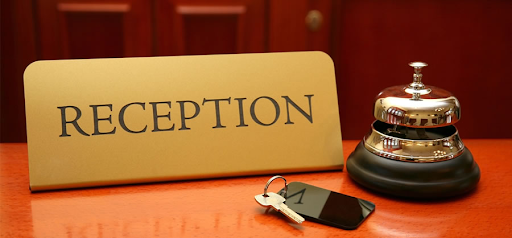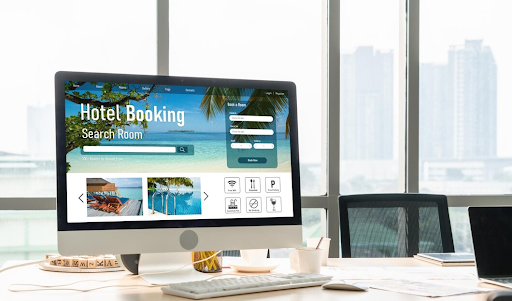Most embassies and consulates worldwide typically demand applicants to provide evidence of accommodation as part of their documentation, particularly for those intending to visit European countries. This stipulation exists because immigration authorities of each nation seek assurance regarding the visitor's lodging arrangements for the entire trip. Mere verbal mentions of staying in a hotel or with friends are insufficient.

Therefore, submitting concrete proof of the intended accommodation is mandatory. Nonetheless, this prerequisite can appear perplexing and exasperating to many due to the varying regulations and criteria for acceptable forms of proof set forth by different countries.
What Documents Can Be Provided as Evidence of Accommodation?
When applying for a visa to your chosen destination, the embassy or consulate overseeing the process might request various forms of proof, such as proof of accommodation, an accommodation certificate, a letter of accommodation, or a hotel confirmation letter.
This piece of evidence, whether in the form of a certificate, letter, or confirmation, can take several shapes:
- Hotel Reservation: A documented booking with a hotel.
- Host Invitation: If you plan to stay with friends or family, a formal invitation from your hosts.
- Tour Operator Confirmation: If you're part of an organised tour, confirmation from the tour operator.
- Rental Agreement: Documentation of a rental contract for your lodging.
- Means of Subsistence in Place of Accommodation Proof: While many countries necessitate accommodation proof, some also accept proof of financial capability to sustain yourself during the trip, often backed by a bank statement demonstrating sufficient funds for your stay, including lodging expenses.
While most countries, especially in Europe, require proof of accommodation, some nations only require evidence of financial means to cover your expenses during the trip, including accommodation costs at hotels, hostels, or guest houses.
Hotel Reservation Requirements for Visa Application
If you intend to stay at a hotel in your destination country, it's crucial to provide proof of your hotel booking as part of your Kenya visa application. This is typically furnished through a document known as a 'hotel confirmation letter' or hotel itinerary for visa application. Once you've reserved a room or suite, the hotel issues this letter to validate your booking.
The hotel confirmation letter should include the following essential details:
- Your full name
- Dates of your entry and exit from the hotel
- Address of the hotel
- Hotel's contact information, such as phone number and email
- A valid reservation code for the hotel
It's customary for every embassy or consulate to recommend selecting a hotel that offers a complete refund of expenses in the event of a visa rejection or delay. If such an option isn't available, opt for the most economical hotel reservation. This is because booking a room at a hotel that doesn't provide refunds in case of visa application issues could result in financial loss.
Host Invitation for Accommodation
When travelling abroad, many individuals opt to stay with friends or family to economise on expenses. While this is acceptable to embassies/consulates, substantiating your accommodation arrangement is crucial.
Your host needs to compose an Invitation Letter, affirming their offer to accommodate you. This letter should encompass the following particulars:

- Stay Duration: Specify the dates you'll be lodging with them.
- Address: Provide the location details of their residence.
- Host's Information: Include the host's full name, contact details (email and telephone number), and signature.
- Living Arrangement: Mention the size of the living space and the number of occupants.
Although not universally mandated, your host might need to demonstrate they have sufficient space to host you. This aspect is significant since if, for example, your friends (a couple) possess only one bed and no extra sleeping arrangements, the embassy might decline your accommodation request.
In some cases, the host may be required to request a 'certificate of accommodation' from their local authorities, verifying their ability to provide lodging. The issuance of this certificate depends on the local authorities' assessment of available space. If deemed suitable, the document is granted; otherwise, it's denied.
Confirmation from Tour Operator or Holiday Tour for Visa Application
If your travel plans involve participating in a group tour arranged by a recognized tour operator, certain documentation is necessary. Specifically, you'll need to provide a letter from the tour operator detailing the accommodations planned for the entirety of the tour. This letter should comprehensively cover the following particulars for each lodging:
- Place Name
- Address
- Contact Details (telephone number and email)
- Entry and Exit Dates
- Reservation Holder's Name
For this documentation to be valid, the tour operator must hold proper legal credentials.
Rental Agreement or Lease Contract for Visa Application
If your travel plans entail renting accommodation in your destination country, it's advisable to organise this prior to applying for a visa. You can conveniently secure a place online and even electronically sign the contract, ensuring you have it ready for submission during your embassy or consulate interview, alongside other required documents.
Typically, the contract should encompass the following essential details:
- Landlord's Full Name
- Contact Information (email, telephone, home address, etc.)
- Rented Property Address
- Duration of Rental Period (entry and exit dates)
It's crucial that the house, apartment, or room is legally rented, meaning it's registered with the relevant authorities in your destination country. The agreement must bear the signatures of both the landlord and the tenant.
Sponsored Lodging
When your travel involves participating in professional engagements like training sessions, seminars, or research activities, with the expenses being sponsored by the event organisers, you're still required to present evidence of your accommodation arrangements. For such instances, a letter from the organisers is necessary.
This letter, endorsed and stamped by the event organisers, should not only include essential information like the accommodation address, email, and telephone number but also explicitly state who will be covering the accommodation expenses.
Comparison: Proof of Accommodation vs. Means of Subsistence
Means of Subsistence evidence typically comes in the form of documents, such as bank statements, to demonstrate your financial capability to sustain yourself during your stay in the destination country. Each country sets a specific daily financial requirement that travellers must meet.
A close correlation exists between Proof of Accommodation and Means of Subsistence. The financial prerequisites differ based on your accommodation plans. For instance:
- Belgium: For a visa, having EUR 95 per day is necessary if lodging in a hotel, but only EUR 45 if opting for more economical accommodation options.
- France: If no prepaid accommodation proof is presented, EUR 120 per day is needed. Having a prepaid hotel reduces this requirement to EUR 65 per day, while cheaper accommodations lower it further to EUR 32.25 daily.
- Denmark: For a visa application, having EUR 67.24 per day is essential when staying in a hotel, while cheaper lodgings like hostels require EUR 47.07 daily. If accommodation is covered by a third party, the financial requirement decreases even more.
This comparison underscores the interplay between accommodation plans and financial prerequisites, illustrating the distinct demands countries place on travellers seeking visas.
FAQS
What is proof of accommodation for visa application?
Proof of accommodation is a document or evidence that shows where you will be staying during your visit to a foreign country. It can include hotel bookings, rental agreements, invitations from hosts, or letters from tour operators.
Why is proof of accommodation required for a visa application?
Immigration authorities want to ensure that travellers have a place to stay during their visit, reducing the risk of travellers becoming stranded or becoming a burden on the host country's resources.
What documents can be submitted as proof of accommodation?
You can submit various documents, including hotel reservation confirmations, rental agreements, letters of invitation from hosts, and letters from tour operators outlining accommodation arrangements.
How do I obtain hotel confirmation for my visa application?
You can book a hotel online and receive a confirmation letter. This letter should include your full name, entry and exit dates, hotel address, contact details, and a valid reservation code.
What is an invitation letter from a host?
An invitation letter is a letter from a friend or family member inviting you to stay at their place during your visit. It should include the host's contact details, your stay dates, and the address of the accommodation.
Can I provide a rental agreement as proof of accommodation?
Yes, if you plan to rent a place in the destination country, you can submit a rental agreement as proof of accommodation. It should include the landlord's details, property address, and rental period.
What if I'm part of an organised tour?
If you're joining a group tour, the tour operator should provide a letter detailing the accommodations for the entire tour. This should include the names, addresses, and contact details of each place you'll be staying.
Do I need to prove my financial capability alongside proof of accommodation?
In many cases, yes. Some countries require you to show proof of means of subsistence, demonstrating you have enough funds to cover your expenses during the trip, including accommodation costs.